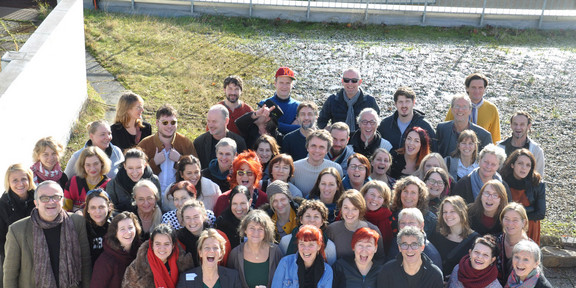2022
EU-project "ARTE - The Art of Employability" has started

The project "ARTE - The Art of Employability" , funded by Erasmus+, started with a kick-off event at the coordinator, the Projektfabrik in Witten from 27 to 29 November 2019.
For 15 years now, the JobAct approach, which sets on a combination of theatre work and job coaching, has been established as an effective method of integrating the long-term unemployed into the labour market in Germany. During the last three years the approach was successfully spread and implemented Europe-wide in the EU-project "JobAct Europe - social inclusion by social arts" under scientific company of the sfs. With the addition of an entrepreneurial approach, the approach will be further developed in the follow-up project "ARTE - The Art of Employability". With the creation of an "entrepreneurial mindset" the participants should be enabled to become self-employed or to actively marketing their manpower in a creative way. With the help of new partner organisations from Portugal and Spain, the dissemination of the method is now being pushed forward in the Mediterranean region. Based on their combined experiences (art, social work, entrepreneurship training, research, evaluation, dissemination) the partners will collaboratively conduct at least 5 pilot projects with young unemployed people, where they go through a minimum 6-weeks phase of theatre training 4 days a week, combined with job and entrepreneurship training. Furthermore, there will be developed an evaluation kit to ensure high quality of adoption and a dissemination strategy kit to ensure maximum spread of the approach. Especially young people who are exposed to discrimination due to unequal biographical opportunities should benefit from participating in the project.
The three-day kick-off meeting in Witten was integrated by the project factory into its annual team meeting. In a series of theatre trainings, theatre and musical performances, all partners had the opportunity to try out the artistic methods first hand with the German theatre pedagogues and to experience the effects of social art for themselves. The sfs is pleased to have the opportunity to accompany the project and to contribute to the further development and dissemination of the socially innovative approach to combating social inequality.
Links




![[Translate to English:] [Translate to English:]](/storages/zentraler_bilderpool/_processed_/a/f/csm_Kontakt_b86e8d8ecc.png)
![[Translate to English:] [Translate to English:]](/storages/sfs-sowi/_processed_/7/e/csm_header_collage_sfs_eving_sozialforschungsstelle_dortmund_31bd3c09fb.jpg)